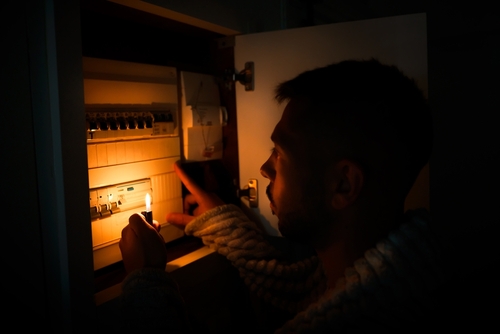
Written on: March 25, 2024
 With a mild-ish winter and higher than average ocean temperatures, the long-range forecast is leaning toward a busy hurricane season. But even if predictions are off, it only takes one storm to down lines and knock out electricity, leaving you without power for days. And our area is frequently within the “cone of probability” for big storms—or the still-powerful remnants of those storms, and with more frequent extreme and unpredictable weather, it’s important to be prepared.
With a mild-ish winter and higher than average ocean temperatures, the long-range forecast is leaning toward a busy hurricane season. But even if predictions are off, it only takes one storm to down lines and knock out electricity, leaving you without power for days. And our area is frequently within the “cone of probability” for big storms—or the still-powerful remnants of those storms, and with more frequent extreme and unpredictable weather, it’s important to be prepared.
The good news is that keeping the power on is easy with a standby generator that runs on the same propane you use to power other appliances and equipment in your home.
A standby generator, also known as a backup generator, is propane-fueled power source that is directly wired to your home’s systems so that it comes on within seconds of a power failure to keep your lights on and your refrigerator, furnace and a/c running until the utilities get the lines back up. Propane generators are quiet, extremely efficient, and clean burning, with low emissions.
A standby propane generator can also keep security systems on—giving you peace of mind, especially if the power fails while you’re away.
When it comes to choosing the best standby generator for your household, size is one of the first considerations. Options range from “essential power” models that will run key equipment such as your refrigerator and heat or AC and lights in a specific area, to true whole-house generators that can manage the demands of most extra-large homes, even during extended outages.
One of the factors to consider is how much power you need to run the appliances or systems you need during an outage. Ask yourself what will be most important to you in an emergency: refrigerator? Heating and cooling systems? Life support equipment? We recommend going for about 20% extra voltage beyond what your appliances require. Talk to your generator dealer to determine what size generator you need.
If you don’t want or need to power your whole home, or you don’t need to run multiple appliances at once, load management can give you all the power you need with a smaller generator.
A portable generator is, well, portable. That can be useful for camping. But most portable generators run on gasoline. That means you need to get in line at the gas station to fill jerry cans when a storm is forecast, or you need a safe place to store gas on your property. Also, a portable generator needs to be set up and turned on—outside—after the power goes out, probably while a storm is still raging, maybe in the middle of the night.
Peace of mind is priceless. But when you do the math, a standby generator usually makes sense compared to dealing with the expense (and hassle) of a power outage—especially if your neighborhood is prone to them. By keeping even just your essential systems running, a standby generator can help you avoid the cost of replacing spoiled food, or the cost of a hotel room—if you can find one.
Another thing: According to Consumer Reports, a properly installed whole-house generator can increase the value of your home by as much as 5%. That’s a great return on your investment, even before you even need to use it.
Adding a backup propane generator is a power move when it comes to protecting your family and your home.
Pico has the experience and training to install your generator correctly and connect the lines to your propane tank, so it powers up your home without damaging your home’s electronic equipment or appliances. (And we can provide you with safe and reliable propane delivery, too.) Contact us today for more information.